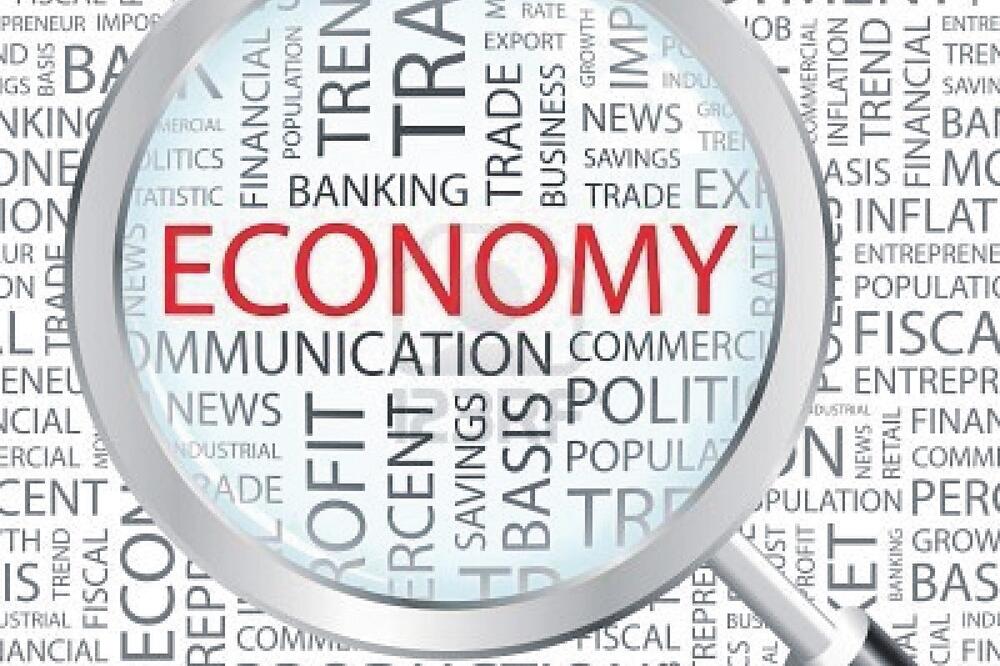Let's be honest: nobody understands what is happening in the world economy today. The recovery from the 2008 crash unexpectedly proved very slow. Are we on the road to full recovery or are we stuck in "centuries of stagnation"? Globalization - staying or not?
The authorities don't know what to do. They push the usual (and unusual) levers, but nothing happens. Quantitative easing was supposed to bring inflation back to the "target level". That didn't happen. Cutting the budget was supposed to restore confidence. That didn't happen either. In early December, Mark Carney, Governor of the Bank of England, gave a speech entitled "The Phantom of Monetarism". Of course, monetarism was supposed to save us from the phantom of Keynesianism!
With virtually no macroeconomic instruments left, talk of "structural reforms" became commonplace. But there is also no agreement on the question of what it really means. Meanwhile, foolish leaders are exasperating disgruntled voters. It seems that the economy has already escaped from the hands of those who should lead it, and now politics is on its heels. Until 2008, the experts were convinced that they had everything under control. Yes, there was a bubble in the real estate market, but it was just a "big pothole," as today's Federal Reserve Chair Janet Yellen called it in 2005.
So why did they miss the storm? This is exactly the question that Queen Elizabeth of England asked a group of economists in 2008. Most of them shrugged. "It is a consequence of the collective illusion of many smart people," they explained.
But some economists are more inclined to another judgment (and it is rather condemning) - the problem of the way economics is studied. Most economics students are not required to study psychology, philosophy, history and political science. They are spoon-fed economic models based on unrealistic assumptions, and they test their competence by solving mathematical equations. They are not taught to use the intellectual tools that would allow them to see the whole picture.
Here we must return to John Stuart Mill, a great economist and philosopher from the XNUMXth century, who believed that a man cannot become a good economist if he is only an economist. Yes, of course, since the time of Milo most scientific disciplines have become highly specialized; and after the collapse of theological science, there was no such branch of science left that would strive to understand man and his condition as a whole. However, no other sphere of human knowledge has been so separated from science as a whole and from other social sciences as is the case with economics.
The reason for this is not the subject of economics as a science. On the contrary, money-making issues fill a large part of our lives and thoughts as before. Economics must be interesting to most people (how do markets work, why do they sometimes collapse, how to estimate project costs). And she actually scares them - all but connoisseurs of imaginative formal models.
This is not because logical instruments are important in economics that allow one to check for error in reasoning. The real problem is that economic science is divorced from a common understanding of how everything works (or should work). Economists claim that they make precise what is vague. They are convinced that economics is superior to all other scientific disciplines because the objectivity of money allows it to measure historical forces precisely, not roughly.
No wonder economists' favorite symbol of the economy is machines. The famous American economist Irving Fisher built a complex hydraulic machine with pumps and levers that allowed him to visually demonstrate the adjustment of market prices to changes in supply and demand.
If you are convinced that it works like a machine, then you will most likely see economic problems as essentially mathematical problems. The effective state of the economy - the total balance - represents the solution of the system of comparative equations. Deviation from balance is a disturbance, just a "bump in the road". If we turn them off, then the results will be predetermined and optimized. Unfortunately, what hinders the continuous operation of the machine are - people. It is possible to understand why economists trained in this way succumb to the temptation of financial models.
But good economists have always understood that such a method has serious limitations. They used their scientific discipline as a kind of intellectual hygiene that protected them from serious errors in reasoning. John Maynard Keynes warned his students not to try to "get everything right". In his great book "The General Theory of Employment, Interest and Money" there are no formal models. He decided to leave the task of mathematical formalization to others, because he wanted the readers (fellow economists, not the general public) to grasp the very essence of what he was talking about. Joseph Schumpeter and Friedrich Hayek, two of the most famous Austrian economists of the last century, also criticized the understanding of the economy as a machine. Schumpeter argued that the capitalist economy develops through the continuous destruction of old relations. For Hayek, the wonder of the market is not that it creates a system of general equilibrium, but that the market coordinates the incompatible plans of an enormous number of people in a world of dispersive knowledge.
Good economists (and many other good people) are united by a breadth of education and outlook. It gives them access to many, diverse ways of understanding the economy. The great men of previous generations knew a lot about economics. Keynes had a degree in mathematics, but then took to studying the ancient classics; he studied economics for less than a year and then started teaching it. Schumpeter was a doctor of legal sciences, and Hayek of legal and political sciences (he also studied philosophy, psychology and brain anatomy).
And modern professional economists, on the contrary, study practically nothing but economics. They don't even read the classic works of their discipline. He will learn about the history of the economy, if it happens at all, from data tables. Philosophy, which could explain the limitations of the economic method, is a closed book for them. Mathematics, demanding and seductive, monopolized their intellectual horizons. Economists are the idiot savants of our time.
The author is Emeritus Professor of Political Economy at the University of Warwick, a Fellow of the British Academy of History and Economics and a member of the British House of Lords.
Copyright: Project Syndicate, 2016.
Bonus video:





